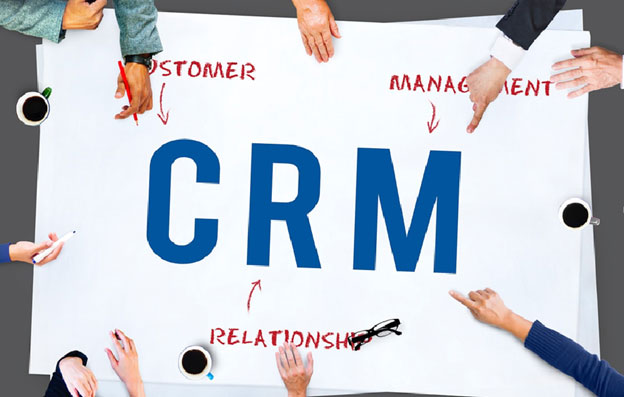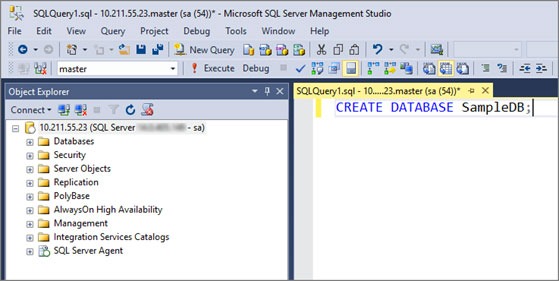What is a CRM Software Database?
A customer relationship management (CRM) database enables you to manage and store all customer interactions into a shared company database. Storing data into a central CRM database enables users to quickly access key account and contact information.
The main benefits of a CRM database are to drive sales and improve customer relations which ultimately improves customer retention.
Popular CRM software systems such as ACT CRM, Infor CRM and Dynamics CRM use a number of database types such as Microsoft SQL and propriety databases.
Types of Databases Used by Leading CRM Vendors
- Salesforce - SOQL is Salesforce Object Query Language that is highly similar to SQL (Structured Query Language).
- Dynamics 365 CRM - SQL server is the database used for Dynamics 365 system and it is one of the pre-requisites to install Dynamics 365.
- SAP CRM - SAP software is Database Independent and runs on Oracle, DB2, SQL Server, SAP HANA, SAP Sybase, MySQL
- Oracle CRM - Oracle uses its own database, Oracle Database (commonly referred to as Oracle RDBMS or simply as Oracle)
- Act! CRM - There are four different versions of Act!: Standard, Pro, Premier and Ultimate. The Standard version uses a propriety database, which Premier and Ultimate uses Microsoft SQL.
- Sugar CRM - The Sugar platform also supports common proprietary databases such as Oracle, IBM DB2, and Microsoft SQL Server.

Ease of Use is an Important Factor to Consider When Choosing a CRM Database
If a CRM database is too complicated to use or hard to access then user adoption can be an issue, leading to users not updating records and you won’t turn to your data as often as needed.
The best CRM software database for a business should be both easy to use, powerful and accessible. Customer data can change fast so it's important to have the latest information at your fingertips, this is why the CRM system you choose should be accessible on mobile devices and via the web.
What is CRM?
CRM Database Performance
The performance of your CRM system is key to keeping users happy, if the database is slow or it takes a long time to run reports then users will become frustrated. Numerous CRM systems find it difficult to process large amounts of data or transactions because of the structure of the database.
Using a CRM system that uses SQL enables you to store large amounts of data and is quick to run searches, reports and database queries. Database engines such as Microsoft SQL, Oracle and MySQL have much better performance characteristics than some other proprietary CRM databases.
Microsoft SQL Database – Built for Performance
What is the Most Popular CRM Database?
The CRM marketplace is very crowded with many vendors claiming a large number of licenses in use. CRM systems such as Act! CRM and Dynamics CRM are popular choices for smaller to medium sized businesses as they offer great value for money, whilst SAP, Oracle, and Salesforce are popular choices for larger enterprises.

CRM Database Security
Securing your CRM database is of paramount importance as your customer data is such a valuable asset. If you’re CRM database falls into the wrong hands it could have significant negative effects for your business.
If your business has an on-premise CRM database you will have additional security concerns compared to businesses that use SaaS CRM solutions (which has a very high level of security), the main issue is to ensure physical security, as there is a higher risk to your database when it sits on your own servers and you need to ensure security of your local network.
Many CRM databases allow permissions to grant certain users access to customer data, I.e a sales manager will probably have access to all customers, whilst a territory manager will probably only have access to customers in that area. It’s important to make sure user access rights are setup correctly, more importantly it’s important that you disable any export features of the CRM database.
How Can a CRM Database Help Your Business?
A CRM database enables you to manage the following company data:
- Stores all details of contacts, customers and prospects, including their addresses, email, social media, live chat, titles, telephone and much more.
- Manage customer interactions including phone calls, meetings, follow-ups, emails, documents, and social media interactions.
- A CRM database such as Infor CRM enables you to manage marketing campaigns, prospects, lead sources, email shots, and social media campaigns.
- More advanced CRM databases help to track support tickets, product defects, returns and customer service levels.
- Modern customer relationship management systems help track social media interactions with Twitter, Facebook, and LinkedIn.
- Track product sales histories, and link in with accounts systems such as Sage 50.
- CRM databases share data in a central location enabling you to run reports, create powerful KPI dashboards allowing you to make better-informed decisions.
- Other data like birthdays and hobbies can be stored helping you to build stronger relationships with your contacts.
To see how a CRM database like Infor or Act! can help your business call us on 0330 043 0140 or email us at info@alphalogix.co.uk.


